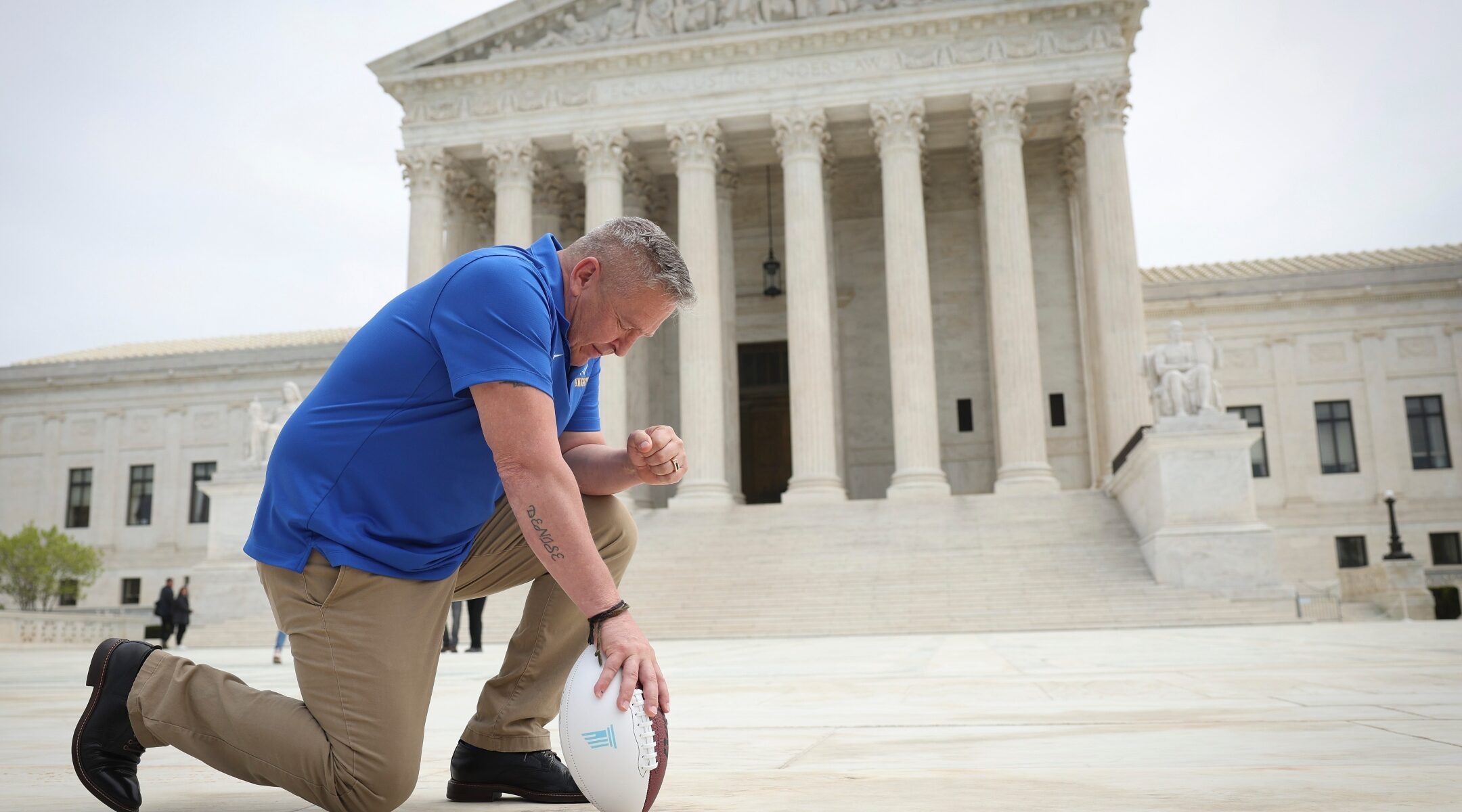WASHINGTON (JTA) — Agudath Israel of America praised the reversal of a judicial standard that came about as a result of a Supreme Court ruling backing a public high school football coach who prayed on the fifty-yard line.
Abba Cohen, the Washington director for the haredi Orthodox umbrella body, said the group was pleased that Justice Neil Gorsuch, who wrote the decision for the court’s 6-3 conservative majority, did away with a decades-old standard for assessing whether a government authority violated church-state standards.
Cohen clarified later that this did not mean his organization was praising the entire ruling. “Agudath Israel has long expressed concern about and opposition to denominational public prayer and the proselytization in schools,” he said.
The “Lemon test,” stemming from the 1971 Lemon v. Kurtzman decision, assesses whether a government action advances or inhibits religion. Orthodox groups have long said the test was overly restrictive.
“Rather than offering protection, ‘Lemon’ too often resulted in Establishment Clause hostility toward religion, which itself is constitutionally prohibited,” Cohen said. “The First Amendment is stronger with its demise.”
Gorsuch in his decision said the Lemon test should be superseded by more recent traditions that refer to “historical practices and understandings.”
“The Constitution and the best of our traditions counsel mutual respect and tolerance, not censorship and suppression, for religious and nonreligious views alike,” Gorsuch wrote.
Monday’s ruling backed Joseph Kennedy, an assistant coach in the Seattle area who was let go from his job because he would not stop on-field prayers. The coach asserted, and the Court majority agreed, that his prayers were “private,” even though his players would join in. Jewish civil rights groups said the ruling put at risk a 1992 ruling banning clergy from praying in schools. That ruling, which the groups said protected children from proselytizers, was spurred by Jewish parents in Rhode Island.
The Orthodox Union, the umbrella body for Modern Orthodox groups and synagogues, declined to comment on Gorsuch’s decision, named Kennedy v. Bremerton School District.
Rabbi Levi Shemtov, the executive vice president of American Friends of Lubavitch (Chabad), said he had mixed feelings about the ruling. Chabad has advocated for years for moments of silence in public schools, seeing them as a means for reflection and promoting more considered behavior.
But Shemtov said the coach’s Christian prayer was not quite the same. “A parochial prayer can present some real problems while a moment of silence is all but unassailable,” Shemtov said in an interview. A moment of silence “gives each individual the right to worship in the privacy of their own mind even in the presence of others.”
JTA has documented Jewish history in real-time for over a century. Keep our journalism strong by joining us in supporting independent, award-winning reporting.






